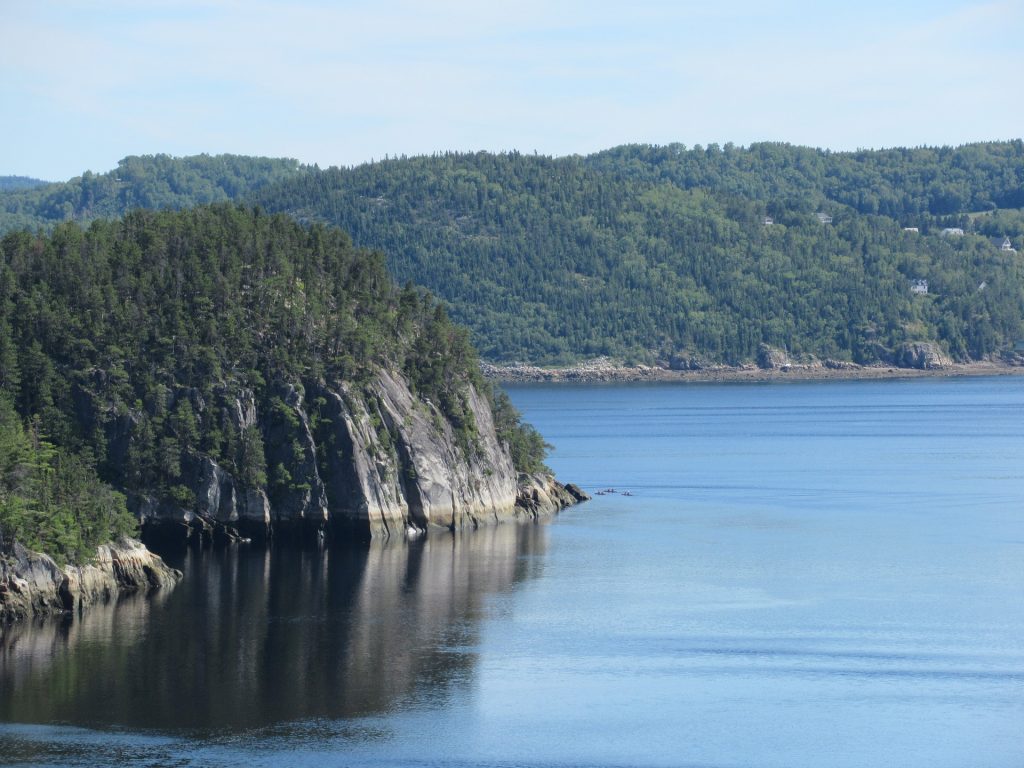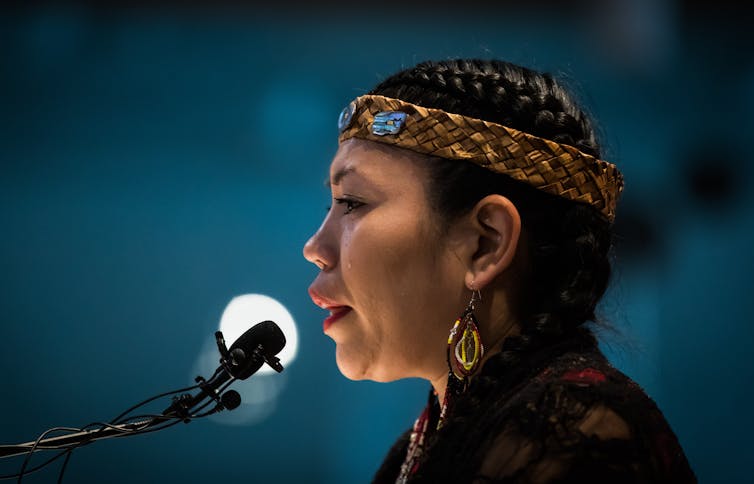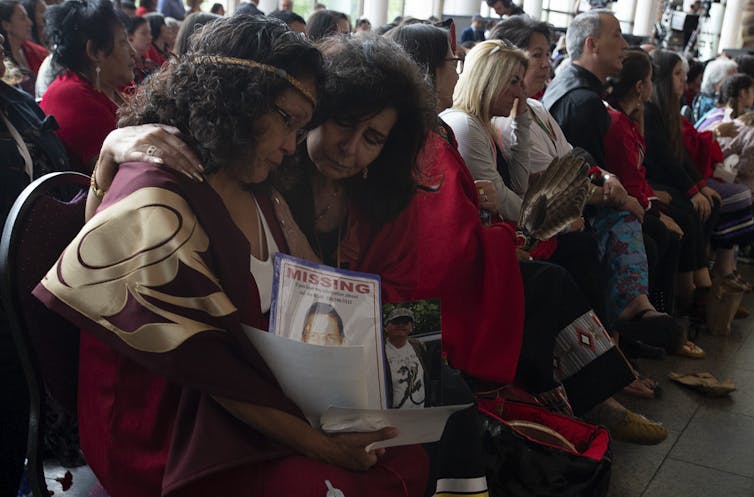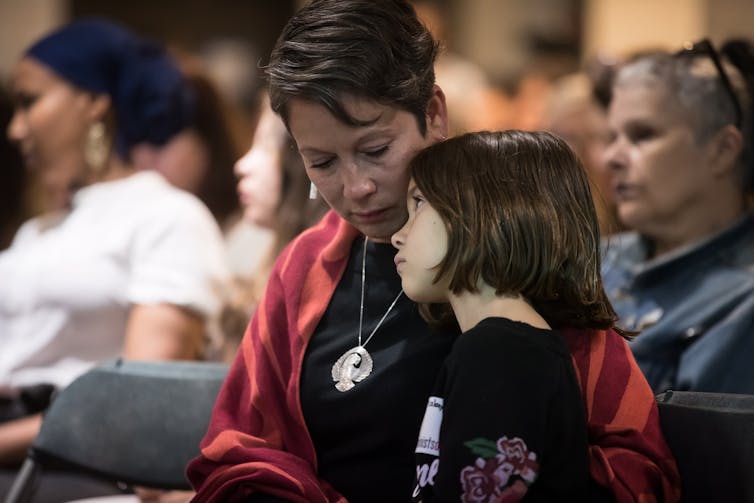
WHAT’S HAPPENING:
“I think it’s incumbent on the national government and (the Fisheries Department) to quickly pull together a meeting that brings all sides together to find a solution that the courts told us 21 years ago we needed to find, and that has to happen soon.” — Premier Stephen McNeil, Nova Scotia
Vehicle torched, lobster pounds storing Mi’kmaw catches trashed during night of unrest in N.S. : https://www.cbc.ca/1.5761468
Lobster catch destroyed, vehicle burned as tension rises over Indigenous fishery in N.S.: https://beta.ctvnews.ca/local/atlantic/2020/10/14/1_5144540.html
And it continues tonight:
https://m.facebook.com/100002294959034/videos/3345228868896912/
I live in Ontario, have never been to Nova Scotia, nor am I Indigenous and I don’t eat lobster. But all the same I am furious about this entire situation. Mobs of white racist fishers are attacking Indigenous fishers, trespassing and destroying their property while RCMP stand around and do nothing more than turning their body cams off. These guys might as well be wearing white hoods and hammering burning crosses into the ground.
This is textbook systemic racism. And it is happening because the Government of Canada failed to do its job on the 21 years since the Supreme Court of Canada’s Marshall Decision. https://www.canlii.org/en/ca/scc/doc/1999/1999canlii665/1999canlii665.html
What ever happened to Canada’s vaunted rule of law? Mobs of white vigilantes are trespassing and destroying property.
It is up to the Federal Government DFO to announce that the Indigenous fishers are not breaking the law.
It is up to the Nova Scotia government to ensure the RCMP upholds thd law, which includes keeping the peace, preventing violence and arresting perpetrators.
If there are any non-racist white people in Nova Scotia, they need to get out and stand with their Indigenous neighbors.
Those of us who don’t live there can help in ways suggested in the list below, republished here [from this Google doc https://docs.google.com/document/d/12jP4OJ4UtVN6fAqB4PWMmQtg4Zm1GMlRHDhEVd-8OgM/mobilebasic] to amplify the message.
[as more MSM coverage appears I will add links at the bottom.]
WAYS TO SUPPORT MI’KMAQ ASSERTING THEIR TREATY RIGHTS IN DIGBY, NOVA SCOTIA (UNCEDED MI’KMA’KI)
- DONATE TO THE FRONTLINERS. E-TRANSFER OR PAYPAL:
- SIPEKNE’KATIK FIRST NATION: monicah@sipeknekatik.ca
MAKE THE SUBJECT LINE “1752 MODERATE LIVELIHOOD”
- EMAIL & CALL YOUR ELECTED OFFICIALS. HERE IS A TEMPLATE & CONTACT INFO
- SUBSCRIBE & DONATE TO INDEPENDENT MI’KMAW JOURNALISTS
- SUBSCRIBE TO KU’KU’KWES NEWS by MAUREEN GOOGOO
- E-TRANSFER: AMBER BERNARD at amberbernardyeg@gmail.com
- ATTEND THE SOLIDARITY RALLY IN HALIFAX / KJIPUKTUK
- DROP OFF SUPPLIES TO THE WHARF IN SAULNIERVILLE (60 Saulnierville Rd)
- Current Needs:
CLOTHING! Warm socks, gloves, hats, sweaters (men’s and women’s – all sizes), men’s sweatpants (all sizes), t-shirts, underwear (men’s and women’s – all sizes), rain jackets
- Flashlights
- Go Pro’s
- A Company who can clean on site Porta Potties
- Tarps
- Gasoline (Fuel for generators)
- Handwashing Stations (4)
- Face Cloths
- Towels
- Shampoo and Body Wash
- Lip Balm
- Rain Boots
- Pepsi
- Plastic Storage Bins/Rubbermaid Totes + Tupperware
- Blankets + Sleeping Bags
- Tobacco
- Rope*
- Lobster traps*
- Lifejackets
- Coffee + Tea
- Sharpies
- Duct Tape
- Firewood
- Lighters
- Deodorant
- Serving Utensils + Kitchen knives
- External Phone Chargers + Battery Packs
- Hand warmers
- Coolers + Ice
- 1ply toilet paper
- SHARE AND AMPLIFY MI’KMAW VOICES. HERE ARE ACCOUNTS TO FOLLOW:
Facebook:
Assembly of Nova Scotia Mi’kmaw Chiefs: www.facebook.com/AssemblyNSChiefs/
Mi’kmaq Rights Initiative: www.facebook.com/KMKNO1752/
Assembly of First Nations: www.facebook.com/AssemblyofFirstNations
Instagram:
@alexa.metallic
@Mgoogoo
@kukuwes_news
@killaatencio
@hannahmaltay
@jennifer.l.denny
@amberblueskye
@devannmarie
@sabredam
@lil.pharroh
@justicegruben
@kirsten_the_worsten
@sl.francis
@junnygirldecolonized
@onecraftymikmaq
@savvyunltd
@MikmaqAngel
Twitter:
@Mikmaq_star
@AndreaPLFN
@BarbaraXLow
@mgoogoo
@Kukukwes
@TheAgentNDN
@amberblueskye
@KaraSPaul1
@PhillipProsper
@nicmeloney
RESOURCES TO SHARE WITH FRIENDS AND FAMILY
On Site Video of Van Fire (Oct 13th)
Posted by Riley Howe moments after Shannon Oliver-Sack’s (Mi’kmaq Fisherman) Van was set on fire.
ALL EYES ON MI’KMA’KI (Mini-Documentary by: Brodie Young, Cheyenne Isaac-Gloade, Alexa Metallic & Jocelyn Mas’l)
APTN – The Facts Behind Mi’kmaw Fishing Rights
https://www.aptnnews.ca/national-news/the-facts-behind-mikmaw-fishing-rights/
TREATY EDUCATION NOVA SCOTIA (Video)
PAM PALMATER
MI’KMAW STATE OF EMERGENCY:
WARRIOR LIFE, CHERYL MALONEY ON MI’KMAW RIGHT TO GOVERN FISHERY (podcast):
MI’KMAW TREATY RIGHTS, RECONCILIATION, AND ‘THE RULE OF LAW’
https://canadiandimension.com/articles/view/mikmaw-treaty-rights-reconciliation-and-the-rule-of-law
PEACE & FRIENDSHIP TREATIES:
SECTION 35, CANADIAN CONSTITUTION:
https://laws-lois.justice.gc.ca/eng/const/page-16.html
THE MARSHALL DECISION:
https://thecanadianencyclopedia.ca/en/article/marshall-case
SHERRY PICTOU
Mi’kmaq and the Recognition and Implementation of Rights Framework: https://yellowheadinstitute.org/2018/06/05/mikmaq-rights-framework/
What is Decolonization? Mi’kmaw Ancestral Relational Understandings and Anthropological Perspectives on Treaty Relations (Chapter 1): https://bit.ly/3cisdwY
ABORIGINAL LAND AND RIGHTS:
FILM: IS THE CROWN AT WAR WITH US?
https://www.nfb.ca/film/is_the_crown_at_war_with_us/
UNITED NATIONS DECLARATION ON THE RIGHTS OF INDIGENOUS PEOPLES:
“Food Fish, Commercial Fish, and Fish to Support a Moderate Livelihood: Characterizing Aboriginal and Treaty Rights to Canadian Fisheries” by Douglas Harris & Peter Millerd:
NEWS ARTICLES:
AMBER BERNARD – “MODERATE LIVELIHOOD IS NOT AN ILLEGAL FISHERY”:
CBC – Mi’kmaw journalist assesses media coverage of fisheries dispute:
https://bit.ly/35NKmBv
The Nova Scotia Advocate – After 21 years of government inaction Mi’kmaq assert their right to fish: https://bit.ly/3ccehV6
contact charlotteroseconnolly@gmail.com with questions

 The proposed 780-kilometre underground pipeline would pass near or through Indigenous territories as it carries the fossil fuel across forests, ecologically sensitive wetlands and protected provincial areas.
The proposed 780-kilometre underground pipeline would pass near or through Indigenous territories as it carries the fossil fuel across forests, ecologically sensitive wetlands and protected provincial areas.












 Back in 2015, Peter Bevan-Baker was the first Green ever elected in PEI. It was only the second time any third party had ever won a seat in PEI.
Back in 2015, Peter Bevan-Baker was the first Green ever elected in PEI. It was only the second time any third party had ever won a seat in PEI.











